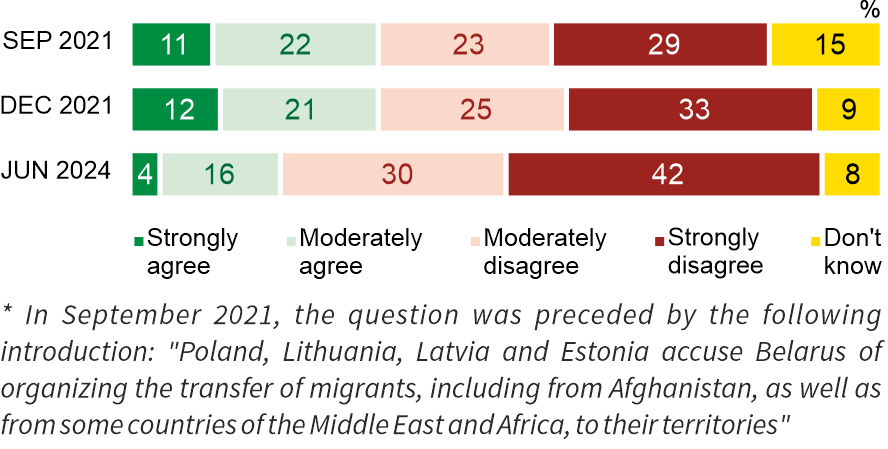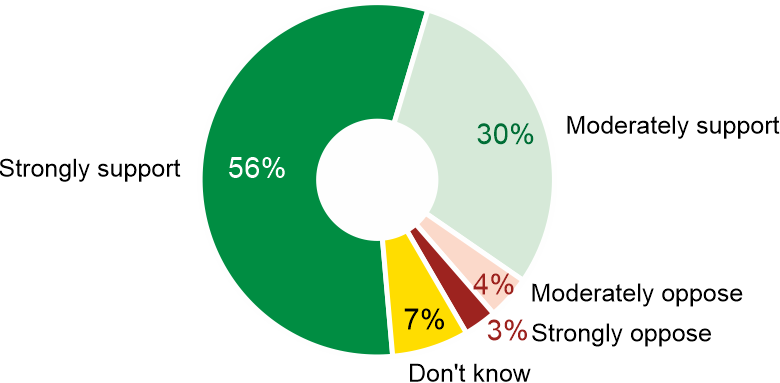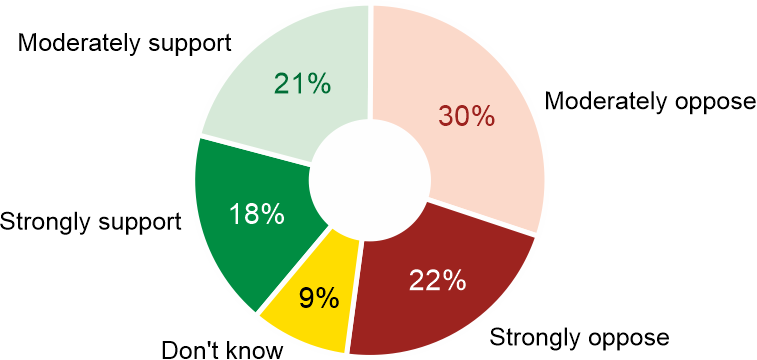About the War in Ukraine and the Situation on the Eastern Border
Author: Jonathan Scovil
|
2024-07-04
In recent weeks, there have been increasingly brutal attempts to illegally cross the Polish-Belarusian border, and as a result of one such situation, a young Polish soldier died. The Polish government considers these incidents to be an element of a hybrid war waged against Poland by the Kremlin-backed regime of Alexander Lukashenko, which brings migrants to the border, among others, from the Middle East and Africa, and encourages them to cross it. These actions are considered to be aimed at threatening security and destabilizing the political situation in Poland, and potentially also in other European Union countries. The crisis has recently become more intense, although it has been going on since 2021. At that time we first asked our respondents about their attitude towards migrants arriving at the Polish-Belarusian border, who are probably not always aware of the role they play in the plans of the Belarusian regime. From the very beginning, Poles were overwhelmingly reluctant to grant migrants access to the asylum procedure in our country. Currently, the attitude towards migrants has worsened. The vast majority of respondents believe that they should not be able to apply for asylum in Poland (72%), and only one-fifth (20%) have the opposite opinion.
Do you agree that the Polish authorities should enable migrants staying on the Polish-Belarusian border to apply for asylum in our country?

Due to the difficult situation on the border, in particular the threat of a potential attack from Russia in the coming years, the Polish government has recently announced the "Eastern Shield" program, under which the Polish border with Belarus and the Kaliningrad region of Russia is to be strengthened. We decided to ask respondents what they think about this idea. It turned out that the vast majority (86%) support it, while only 7% are against. It is worth emphasizing that, like no other government project, the "Eastern Shield" enjoys the support of a vast majority of voters of all main political parties in Poland.
Recently, the government announced the "Eastern Shield" program, under which the Polish border with Belarus and the Kaliningrad region of Russia is to be strengthened. Do you support this action?

The discussion about strengthening the Polish borders with Belarus and the Kaliningrad region included the idea of creating minefields in selected border areas, raised by the military and politicians of both the opposition and the ruling coalition. The idea was controversial, and many people argued that its implementation was prevented by the Ottawa Treaty, which has been binding on Poland - as well as other NATO countries - since the late 1990s and prohibits the use of anti-personnel mines on the battlefield. We decided to check what respondents think about this. It turns out that approximately half of Poles are against the creation of minefields along Poland's borders (52%), but quite a large group of respondents support such a solution (39%).
Ideas to strengthen our borders include the creation of minefields in selected border areas. Do you support such a solution?

More information about this topic can be found in CBOS report in Polish: “About the War in Ukraine and the Situation on the Eastern Border", June 2024. Fieldwork dates for the sample: June 2024, N=1055. The random sample is representative for adult population of Poland.




